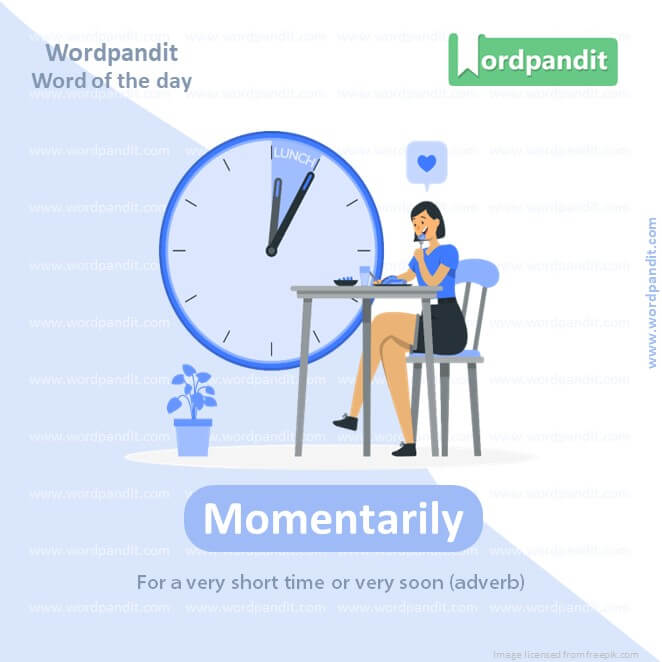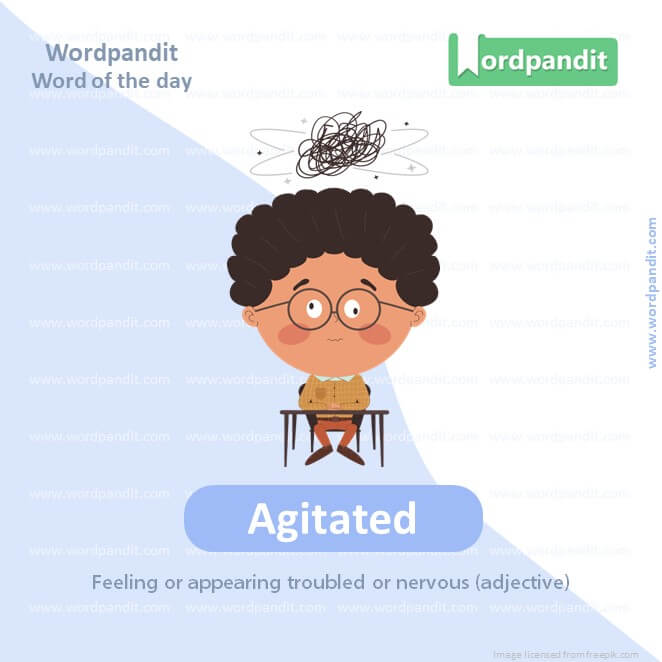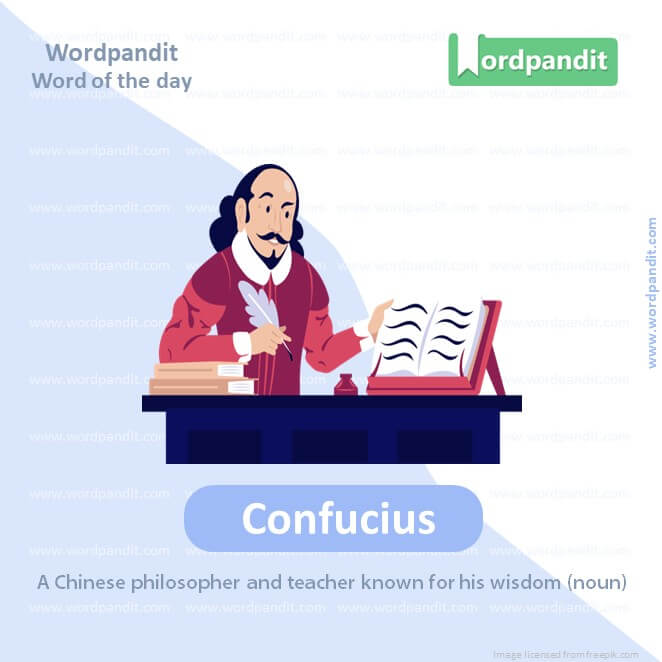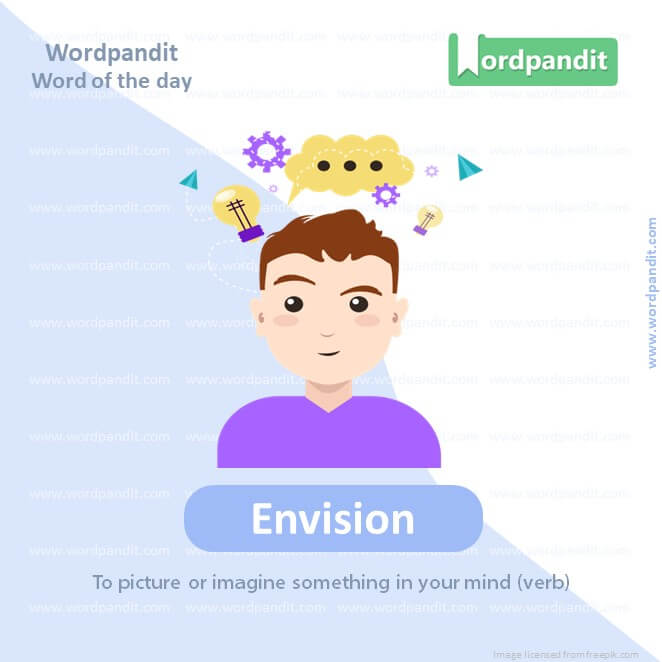Daily Vocabulary Words: List of Daily Used Words in Leading Indian Newspapers
Hi there. Welcome to this special section @ Wordpandit. Our endeavour here is straightforward: highlighting daily vocabulary words that you would come across in leading newspapers in the country. We have included the following newspapers in our selection:
• The Times of India
• The Economic Times
• Hindustan Times
• Mint
• Indian Express
We are putting in extensive work to develop your vocabulary. All you have to do is be regular with this section and check out this post daily. This is your repository of commonly used words; essentially, we are posting a list of daily used words. Hence, this has significant practical application as it teaches you words that are commonly used in leading publications mentioned above.
Visit the website daily to learn words from leading Indian newspapers.

WORD-1: Momentarily
CONTEXT: the considerable local interest generated by his trip was unparalleled and Sunak could be forgiven for momentarily setting aside his political travails at home.
SOURCE: Indian Express
EXPLANATORY PARAGRAPH: Think of when you blink your eyes. It happens really quickly, right? “Momentarily” is a word that means something will happen very soon or only for a very short time, just like your blink.
MEANING: For a very short time or very soon (adverb).
PRONUNCIATION: mo-men-TAIR-uh-lee.
SYNONYMS: briefly, shortly, temporarily, for an instant, in a moment, for a bit, in a jiffy.
USAGE EXAMPLES:
1. She stepped out momentarily to grab her toy.
2. The lights flickered momentarily during the storm.
3. I’ll be with you momentarily.
4. He was momentarily lost in thought.

WORD-2: Agitated
CONTEXT: Agitated backbench in his party and voters fatigued after nearly 13 years of Tory rule, Sunak has a fierce battle ahead.
SOURCE: Indian Express
EXPLANATORY PARAGRAPH: Imagine shaking a bottle of soda really fast. It gets all bubbly and excited inside. When someone feels “agitated”, it means they are feeling upset or shaken up inside, kind of like the soda.
MEANING: Feeling or appearing troubled or nervous (adjective).
PRONUNCIATION: AG-i-tay-ted.
SYNONYMS: upset, disturbed, rattled, flustered, bothered, unsettled, anxious.
USAGE EXAMPLES:
1. The loud noise made the baby agitated.
2. She became agitated when she couldn’t find her toy.
3. The cat was agitated by the barking dog.
4. He felt agitated after the argument.

WORD-3: Confucius
CONTEXT: Several Confucius Institutes were established, often at private or regional universities.
SOURCE: Hindustan Times
EXPLANATORY PARAGRAPH: Confucius was a very wise man from a long time ago in China. People remember him because he said many smart things about how we should live and be kind to each other.
MEANING: A Chinese philosopher and teacher known for his wisdom (noun).
PRONUNCIATION: kon-FYOO-shus.
SYNONYMS: sage, philosopher, thinker, wise man, scholar, teacher.
USAGE EXAMPLES:
1. Confucius taught many important lessons about life.
2. People quote Confucius when they want to share wisdom.
3. Confucius believed in treating others kindly.
4. Many sayings of Confucius are still remembered today.

WORD-4: Envision
CONTEXT: it would have been difficult to envision the scenic Czech capital as an epicentre of the emerging global competition between the United States and China.
SOURCE: Hindustan Times
EXPLANATORY PARAGRAPH: Think about daydreaming and imagining things in your head. When you “envision” something, it’s like you’re making a picture or movie of it in your mind.
MEANING: To picture or imagine something in your mind (verb).
PRONUNCIATION: en-VIZH-un.
SYNONYMS: imagine, picture, visualize, dream, foresee, contemplate, conceive.
USAGE EXAMPLES:
1. She could envision herself flying like a bird.
2. Can you envision a world where everyone is kind?
3. He envisioned building a big treehouse.
4. She tried to envision the story as her grandma told it.

WORD-5: Conglomerate
CONTEXT: the fourth-generation entrepreneur of the premium tea conglomerate
SOURCE: Times of India
EXPLANATORY PARAGRAPH: Imagine a big jar filled with all sorts of candies mixed together. “Conglomerate” is a word that means a mix or combination of different things, kind of like that jar of candies.
MEANING: A mixture or combination of different things or a big company made up of smaller ones (noun).
PRONUNCIATION: kon-GLOM-er-ate.
SYNONYMS: mixture, combination, blend, mix, collection, assortment.
USAGE EXAMPLES:
1. The toy box was a conglomerate of different games and dolls.
2. The conglomerate bought many smaller businesses.
3. Rocks on the beach were a conglomerate of shells and stones.
4. The music festival was a conglomerate of various styles.
WORD-6: Construed
CONTEXT: The Sufi dialogue is also construed as a disruptive strategy of the BJP to create a divide among Muslims.
SOURCE: Indian Express
EXPLANATORY PARAGRAPH: Think about looking at a picture and trying to guess what’s happening. “Construed” is a fancy word that means you’re trying to understand or explain something in a certain way.
MEANING: To interpret or understand the meaning of something in a particular way (verb).
PRONUNCIATION: kon-STROOD.
SYNONYMS: interpret, understand, take, see, view, regard, explain.
USAGE EXAMPLES:
1. The smile on her face was construed as happiness.
2. His silence was construed as agreement.
3. How the story was construed varied among listeners.
4. The teacher construed the poem in a unique way.
WORD-7: Annulling
CONTEXT: Three months after annulling the sister-city agreement with Beijing, Prague entered into a similar agreement with Taipei.
SOURCE: Hindustan Times
EXPLANATORY PARAGRAPH: Imagine drawing a picture and then erasing it so it’s like it was never there. “Annulling” is like erasing something, but not just a drawing – it’s making something official go away or not count anymore.
MEANING: To declare invalid or void, making it as if it never happened (verb).
PRONUNCIATION: an-NUL-ing.
SYNONYMS: cancel, void, invalidate, negate, abolish, revoke, nullify.
USAGE EXAMPLES:
1. They considered annulling the agreement.
2. The decision was made with the hope of annulling past mistakes.
3. The judge was asked about annulling the contract.
4. They discussed annulling their previous decision.
WORD-8: Triumphant
CONTEXT: India’s triumphant four-wicket victory over New Zealand in the ongoing World Cup.
SOURCE: Times of India
EXPLANATORY PARAGRAPH: Imagine winning a race or a game and feeling really happy and proud. When you feel “triumphant”, it’s like that – you feel like you’ve won or done something great!
MEANING: Feeling joy or pride because of a success or victory (adjective).
PRONUNCIATION: try-UMF-ant.
SYNONYMS: victorious, successful, winning, jubilant, exultant, proud, elated.
USAGE EXAMPLES:
1. The triumphant team celebrated their win.
2. She had a triumphant smile after solving the puzzle.
3. The music sounded triumphant and uplifting.
WORD-9: Rigorous
CONTEXT: These institutions promise rigorous education and unrivaled networking opportunities, which leads to a brighter future.
SOURCE: Times of India
EXPLANATORY PARAGRAPH: Think about doing something that’s really hard and takes a lot of effort, like a tough workout or a challenging puzzle. When something is “rigorous”, it means it’s very strict and challenging.
MEANING: Very strict, thorough, or challenging (adjective).
PRONUNCIATION: RIG-er-us.
SYNONYMS: strict, thorough, tough, demanding, strenuous, exacting, challenging.
USAGE EXAMPLES:
1. The training was rigorous, but it prepared them well.
2. She followed a rigorous study schedule.
3. The mountain climb was a rigorous journey.
4. The teacher had rigorous standards for the class.
WORD-10: Seamlessly
CONTEXT: Heather has seamlessly translated her profound expertise in admissions adjudication into WGC services tailored to suit the specific client’s needs.
SOURCE: Times of India
EXPLANATORY PARAGRAPH: Imagine putting two pieces of cloth together so perfectly that you can’t even see where they join. When something is done “seamlessly”, it means it’s done so smoothly and perfectly that you can’t see any mistakes or gaps.
MEANING: Smoothly and without any visible gaps or changes (adverb).
PRONUNCIATION: SEEM-lessly.
SYNONYMS: smoothly, flawlessly, continuously, perfectly, without a hitch, unbrokenly, without interruption.
USAGE EXAMPLES:
1. The two teams worked seamlessly together.
2. The music transitioned seamlessly from one song to the next.
3. The movie combined reality and fantasy seamlessly.
4. She seamlessly integrated the new updates into the project.
vocabulary correction
Vocabulary correction plays a critical role in enhancing the eloquence of our verbal and written communication. It is necessary to conquer the nuances of a language and get the message across clearly.
Learning vocabulary correction shouldn’t come across as a daunting task laden with an overbearing list of complicated words. In fact, it’s a lifelong journey that evolves continuously with constant learning and usage. So, how exactly does one embark on this journey of vocabulary correction?
Initially, it’s essential to read extensively. Make books, newspapers, blogs and scholarly articles your best friends. They are the potential wellsprings of words waiting to enrich your vocabulary. As you come across unfamiliar words or phrases, have a dictionary and thesaurus handy to comprehend their meanings and usage.
Next, regularly engaging in vocabulary games and quizzes is a fun method of vocabulary correction that shouldn’t be understated. Not only does it expand your knowledge, but it also tests your current vocabulary prowess. Word puzzles, crosswords, and language learning mobile applications offer great platforms for this.
Writing is another powerful tool for effective vocabulary correction. Jotting down thoughts, ideas, or chronicling day-to-day experiences helps us weave words together, enhancing our vocabulary use. You look for the right words to express yourself, and in the process, you learn the correct usage of previously unfamiliar words.
No course of vocabulary correction is complete without active conversation. Engaging in meaningful dialogues introduces us to different styles and manners of speech. We pick up new words and expressions that we may not stumble upon during solitary reading or writing.
Lastly, vocabulary correction involves continuous practice and diligence. Language learning is not a one-and-done deal. It’s a consistent task of engaging, experimenting, and adapting. Remember, vocabulary correction can be monumentally effective education; make sure you learnt it the right way.













